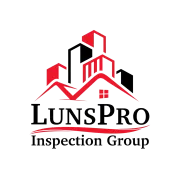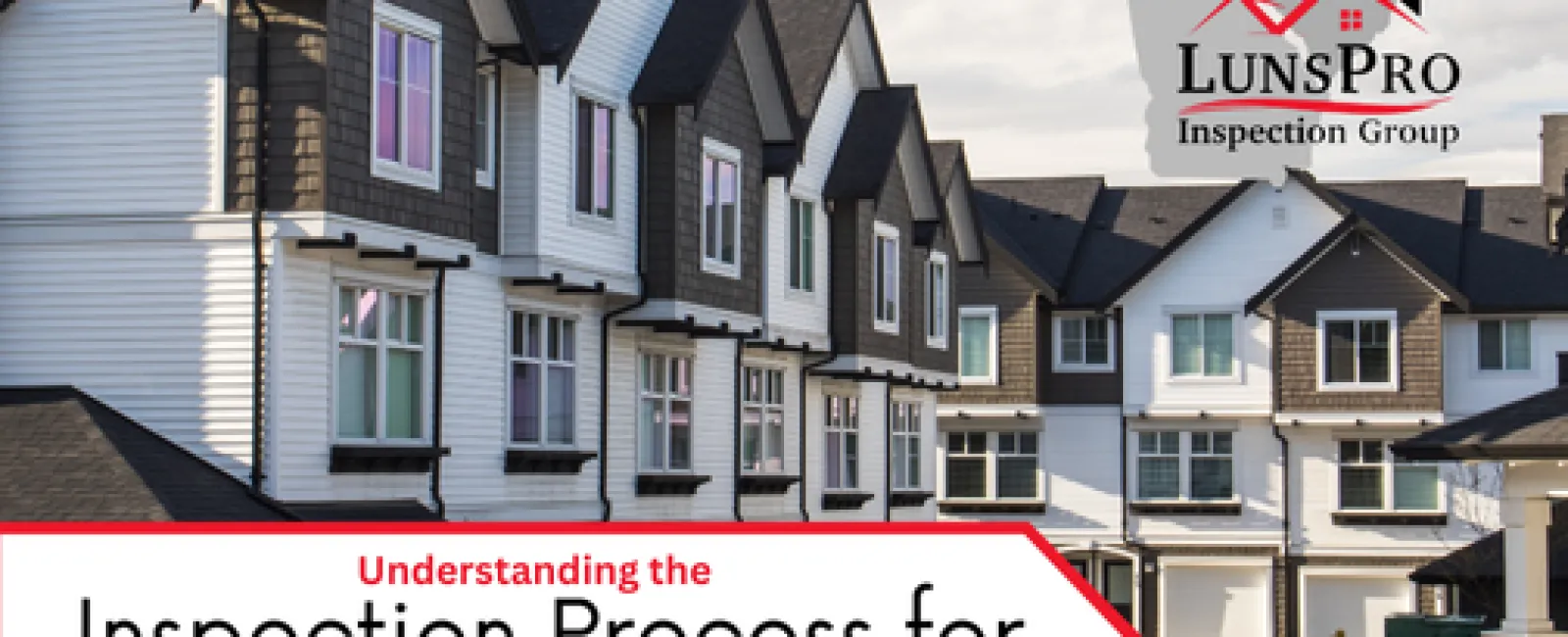Purchasing a condo or townhome is a significant investment, and ensuring the property is in good condition is essential. While the inspection process for these types of homes is similar to that of a single-family home, there are some key differences and unique considerations to be aware of. This comprehensive guide will help you understand the condo and townhome inspection process and how LunsPro Inspection Group, a leading team of Atlanta, GA home inspectors, can assist you in making an informed decision.
1. The Importance of Condo and Townhome Inspections
Condos and townhomes often come with the benefit of shared maintenance responsibilities, but that doesn't mean an inspection is any less important. Whether you're a first-time buyer or an experienced homeowner, an inspection can uncover potential issues that may not be visible during a casual walkthrough. From structural integrity to HVAC systems, plumbing, and electrical components, a thorough inspection ensures that you know exactly what you're buying.
Why It's Important:
- Identifies potential problems that may require immediate attention or repairs.
- Helps you understand the overall condition of the property.
- Provides peace of mind knowing that your investment is protected.
LunsPro Inspection Group offers Atlanta residential and commercial home inspections that cater to the specific needs of condo and townhome buyers.
2. Common Areas vs. Individual Units
One of the unique aspects of condo and townhome inspections is the distinction between common areas and individual units. Common areas, such as lobbies, hallways, and exterior walls, are typically maintained by the homeowners' association (HOA), while individual unit owners are responsible for the interior of their homes. This distinction impacts what is covered during an inspection.
What to Expect:
- Common Areas: The inspection may include an overview of the common areas, but the focus will primarily be on the individual unit. It's important to review the HOA's maintenance responsibilities and reserve funds to ensure common areas are well-maintained.
- Individual Units: The inspection will thoroughly assess the condition of the unit's interior, including the plumbing, electrical systems, HVAC, and appliances.
A Atlanta home inspector will work with you to ensure you understand the scope of the inspection and what is covered by the HOA.
3. Exterior Elements and Structural Components
In townhomes, the exterior elements, such as the roof, siding, and foundation, are often shared with neighboring units. This means that any issues with these components could potentially affect multiple units. In condos, exterior elements are usually maintained by the HOA, but it's still crucial to assess their condition to avoid future problems.
What to Look For:
- Roof and Siding: Check for signs of wear and tear, such as missing shingles, cracks, or water damage. These issues can lead to leaks and other problems that could affect your unit.
- Foundation and Structural Integrity: Inspect for cracks or shifts in the foundation that could indicate settling or structural concerns.
- Balconies and Decks: These features should be inspected for stability, safety, and signs of water damage.
Atlanta drone inspections can be particularly useful in assessing hard-to-reach exterior elements, ensuring a comprehensive evaluation of the property.
4. Plumbing and Electrical Systems
Plumbing and electrical systems in condos and townhomes can be more complex than in single-family homes due to shared lines and circuits. It's essential to ensure these systems are in good working order and that there are no potential hazards.
Key Areas to Inspect:
- Plumbing: Check for leaks, water pressure issues, and the condition of pipes. Shared plumbing lines can lead to problems that affect multiple units.
- Electrical: Ensure that the electrical system is up to code and capable of handling modern appliances and electronics. Look for signs of outdated wiring or overloaded circuits.
A Atlnta septic and sewer scope inspection may be recommended if there are concerns about the shared plumbing system or if the unit is in an older building.
5. HVAC Systems
The heating, ventilation, and air conditioning (HVAC) system is crucial for maintaining a comfortable living environment. In some condos and townhomes, HVAC systems may be shared between units, while others have individual systems.
Inspection Focus:
- System Age and Condition: Determine the age and condition of the HVAC system to assess its remaining lifespan and potential need for replacement.
- Ventilation: Ensure that the ventilation system is functioning properly and that there are no blockages or issues with air quality.
If you're concerned about indoor air quality, Atlanta mold and air quality testing can help identify any potential issues that could impact your health.
6. Interior Components
The interior of the condo or townhome is where you'll spend most of your time, so it's essential to ensure everything is in good working order. This includes walls, floors, ceilings, windows, doors, and built-in appliances.
What to Inspect:
- Walls and Ceilings: Look for signs of water damage, cracks, or mold growth that could indicate underlying problems.
- Floors: Check for uneven floors, squeaks, or soft spots that could signal structural issues or subfloor damage.
- Windows and Doors: Ensure that windows and doors open and close properly and that they are sealed against drafts and water intrusion.
An Atlanta home maintenance inspection can help you identify any areas that may need attention before moving in.
7. HOA Documents and Reserve Funds
In addition to the physical inspection, reviewing the HOA documents and reserve funds is crucial. These documents outline the rules, regulations, and responsibilities of the HOA, as well as the financial health of the community.
Why This Matters:
- Reserve Funds: Ensure that the HOA has adequate reserve funds to cover future repairs and maintenance of common areas. A lack of reserves could result in special assessments or increased fees.
- HOA Rules: Review the rules and regulations to understand any restrictions or requirements that may affect your living experience.
Understanding the financial stability of the HOA can prevent unexpected expenses and ensure that the property is well-maintained.
8. The Role of Specialized Inspections
Depending on the age, location, and condition of the condo or townhome, specialized inspections may be necessary. These inspections provide additional information about specific aspects of the property that may not be covered in a standard inspection.
Specialized Inspections to Consider:
- Radon Testing: Especially important in areas where radon levels are known to be high. Atlanta radon testing can identify the presence of radon gas, which is a health hazard if left unaddressed.
- Pool Inspections: If the property has a private or shared pool, a Atlanta pool inspection will ensure that it meets safety standards and is in good condition.
- Mold and Air Quality Testing: Identifies potential mold growth or air quality issues that could impact your health.
LunsPro Inspection Group offers a range of specialized inspections to ensure that every aspect of the property is thoroughly evaluated.
Understanding the inspection process for condos and townhomes is essential for making an informed purchase. While these properties offer unique benefits, they also come with specific challenges that require careful evaluation. By working with LunsPro Inspection Group, a trusted Atlanta, GA home inspection company, you can ensure that your condo or townhome is in excellent condition and free from hidden issues.
Our comprehensive Atlanta residential and commercial home inspections cover everything from exterior elements to interior components, HVAC systems, plumbing, electrical, and specialized inspections like radon testing and mold and air quality testing. Whether you're buying a new condo or townhome or maintaining an existing one, our expert team is here to provide the thorough inspection services you need.

